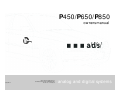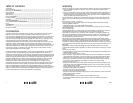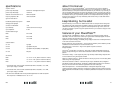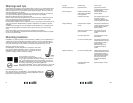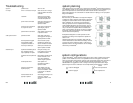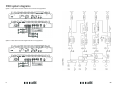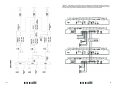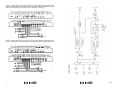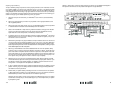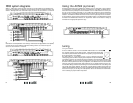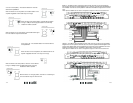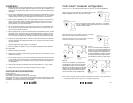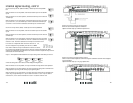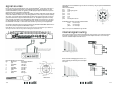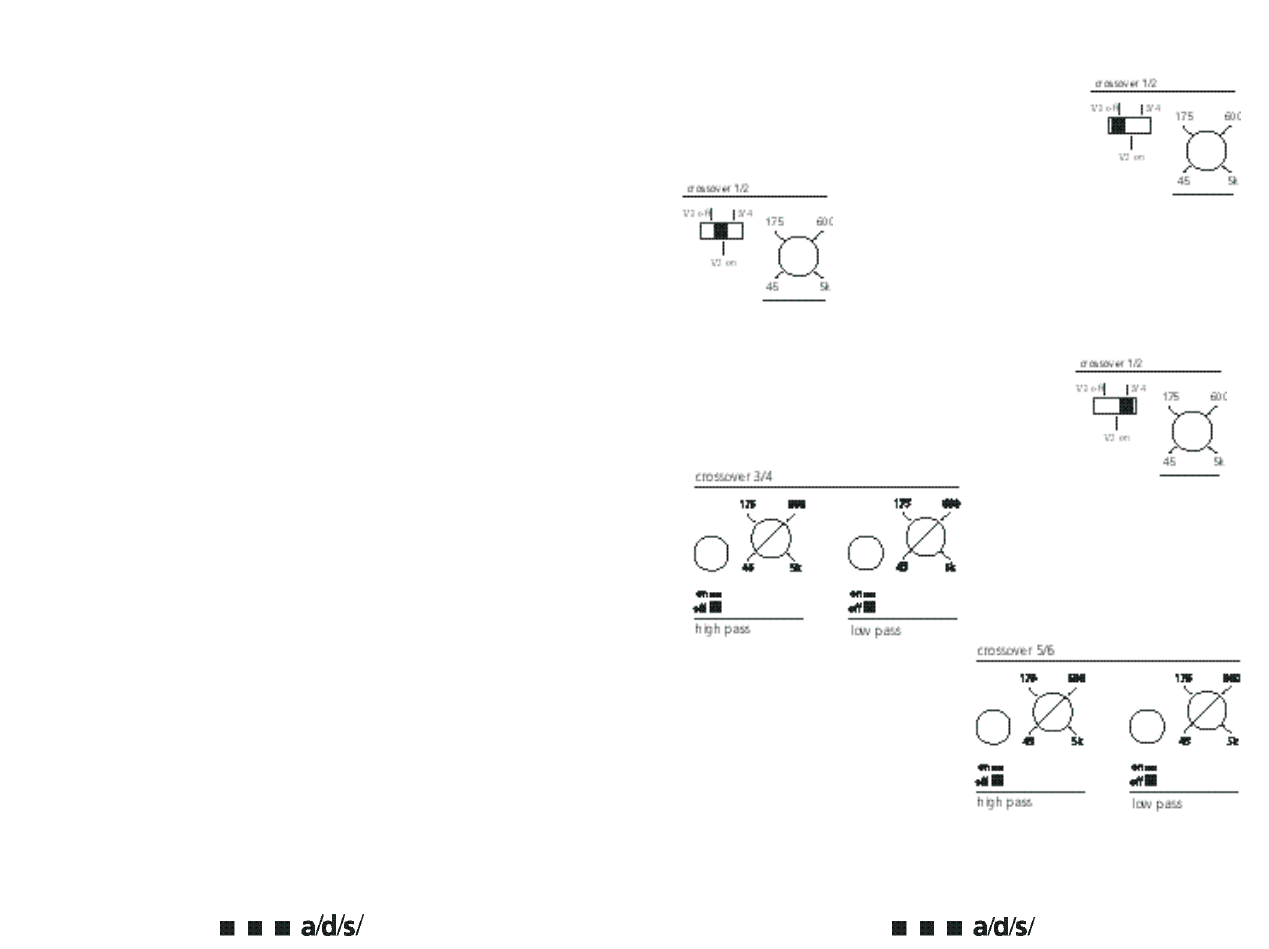
11
16
installation
1. Disconnect the battery ground cable. Reconnect the ground cable only after the installation is
complete and the wiring has been checked to make sure that there are no problems. If your
radio features a code type security system, be sure you know the code before disconnecting
the battery!
2. Run a minimum AWG #8 power wire directly from the battery to the PowerPlate™ mounting
location. Install a fuseholder at the battery end of this cable either within 18" of the battery
or before the wire runs through any metal partitions. Do not install the fuse at this time.
3. Attach a minimum AWG #8 ground wire to a solid chassis ground point near the mounting
location. Keep this wire as short as possible. Scrape all paint and primer off of the sheet
metal at the ground point to ensure a good electrical connection. Attach the wire to the
ground point with a nut, bolt and star washer.
4. Run the signal leads and remote turn-on leads from the head unit to the PowerPlate™ loca
tion. If using an internally powered radio or factory radio refer to the "signal sources" sec
tion for the proper wiring connections.
5. Install the speakers and run each of the speaker leads to the PowerPlate™ location. Connect
the speaker, remote, and power wires to the appropriate terminals on the plug-in terminal
blocks. Refer to the "controls and connections" or "system planning" sections for informa
tion on the proper connections. The terminal blocks install with the set screws facing down.
6. Preset the 2/4 channel selector switch, crossover and channel mode switches, and crossover
frequency switches to the desired positions. Refer to the "controls and connections" section
for more information.
7. Adjust all amplifier input level controls to the 1/4 position.
8. Mount the amplifier into position and plug in the power and speaker terminals. Attach the
input signal cables.
9. Reattach the battery ground cable.
10. Double check your switch and control settings. Install a 80A fuse in the fuseholder you have i
nstalled near the battery.
11. Turn on the signal source at a low volume level. Using the balance and fader controls, check
to see that each channel is connected to the proper speakers. Make sure that the proper fre
quency range is being sent to each speaker if you are using the crossover features built in to
your PowerPlate™.
12. Adjust the input sensitivity and crossover frequencies as described in the "tuning" section.
13. Read the rest of this manual to get maximum enjoyment from your system.
controls and connections
power connections
Use AWG #8 or larger power and ground cable.
Install a 80A fuse in the power wire within 18" of the battery.
Keep the ground wire to a minimum length and attach solidly to a clean metal part of the vehicle.
The addition of a .5 Farad to 1 Farad power supply capacitor, mounted as close as possible to the
PowerPlate™, may improve performance in some systems.
multi-cross™ crossover configuration
xover control 1/2 – The crossover selection switch for channels 1 & 2 has three possibilities:
When the switch is in the left position, the crossover section of the
amplifier is bypassed. Channels 1 & 2 output is full range.
When the switch is the center position, channels 1 & 2 are filtered
through a 12dB per octave high-pass crossover that is infinitely vari-
able from 45Hz to 5,000Hz.
When the switch is in the right position, channels 1 & 2 receive
signal from the crossover output of channels 3 & 4.
Note: When the switch is in the right position, the output
level is controlled by the ch 3/4 level control.
xover con-
trol 3/4 – The crossover section dedicated for
channels 3 & 4 are activated by depressing the
switch next to each frequency adjustment con-
trol. Both high-pass and low-pass crossovers
are infinitely adjustable from 45Hz to 5,000Hz.
The high-pass and low-pass sections may be
used individually or together to create a band-
pass filter.
xover control 5/6 (P850) – The crossover sec-
tion dedicated for channels 5 & 6 are activated
by depressing the switch next to the frequency
adjustment control. Both high-pass and low-pass
crossovers are infinitely adjustable from 45Hz to
5,000Hz. The high-pass and low-pass sections
may be combined to create a bandpass filter.
Note: When using both sections to create a bandpass filter, make sure you have selected
a low-pass frequency which is higher than the high-pass frequency!



